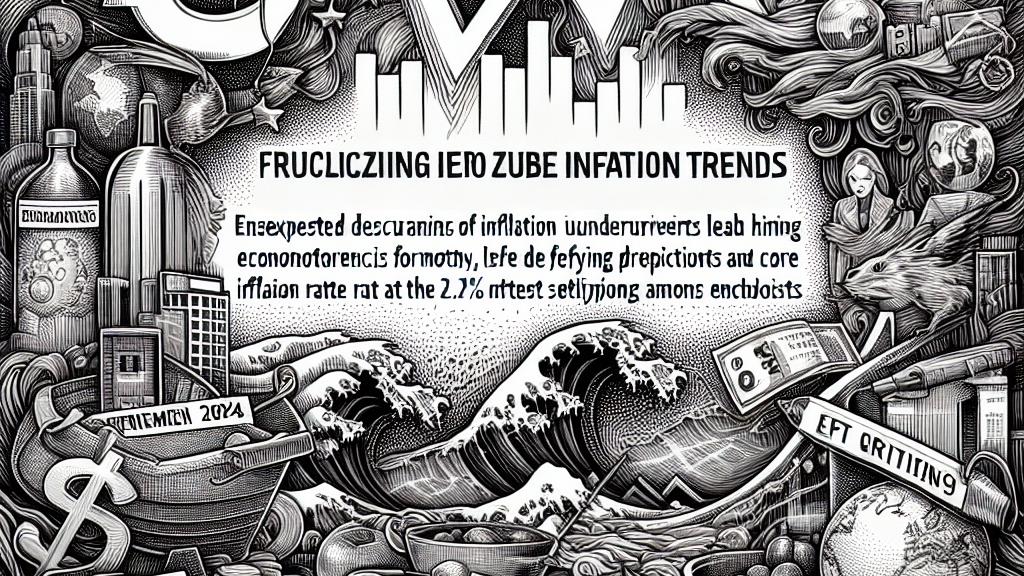September 2024 Euro Zone Inflation Trends
Overview
- In September 2024, euro zone inflation surprisingly dropped to 1.8%, well below the European Central Bank's target.
- This significant decline from the previous month's 2.2% raises vital questions about economic stability and policy adjustments.
- Experts foresee that while inflation may show signs of fluctuation, it is likely to stay below the 2% target throughout the upcoming year.

Current State of Inflation
September 2024 marked a noteworthy shift for the euro zone as inflation descended to an unexpected 1.8%. This alarming figure not only fails to meet the European Central Bank’s (ECB) target of 2% but also signals broader economic trends that could reshape financial forecasts. Just a month prior, inflation had registered at 2.2%, prompting concerns among economists about rising prices. The core inflation rate, which excludes volatile items like energy and food, settled at 2.7%, defying predictions that it would hold steady at 2.8%. This drop is particularly significant in major euro zone economies, including Germany and France, where consumers and businesses alike are closely watching inflation’s trajectory.
Implications and Predictions for the Economic Landscape
The implications of this inflation drop extend far and wide, influencing both market dynamics and policy discussions. For instance, German businesses are now re-evaluating pricing strategies amid falling inflation. Economic analysts from institutions like Capital Economics and Deutsche Bank are surmising that the ECB may opt for a rate cut during its forthcoming meeting in October, aligning with the need to stimulate growth while managing inflation. This sentiment resonates with experts like Bert Colijn, who underscores the importance of finding a delicate balance; too much focus on curbing inflation could stifle economic momentum. With global oil prices declining, many wonder how long this trend will persist and whether it will inspire a rebound in inflation later in the year.
The ECB's Forward-Looking Strategies
In light of these developments, ECB President Christine Lagarde has voiced a growing confidence regarding the potential return to the 2% inflation target. However, she cautioned that any revival in inflation rates could be fleeting, largely dependent on past fluctuations in energy prices. This critical juncture beckons careful consideration; with an upcoming monetary policy meeting set for October, the decisions made could dramatically impact both inflation and employment rates across the euro zone. Federal Reserve Chair Jerome Powell's recent remarks about achieving economic balance evoke a belief that a thoughtful, measured approach will steer monetary policy effectively. By fostering both stability and growth, the ECB aims to navigate the euro zone through these turbulent economic waters, safeguarding the financial well-being of both consumers and businesses alike.

Loading...